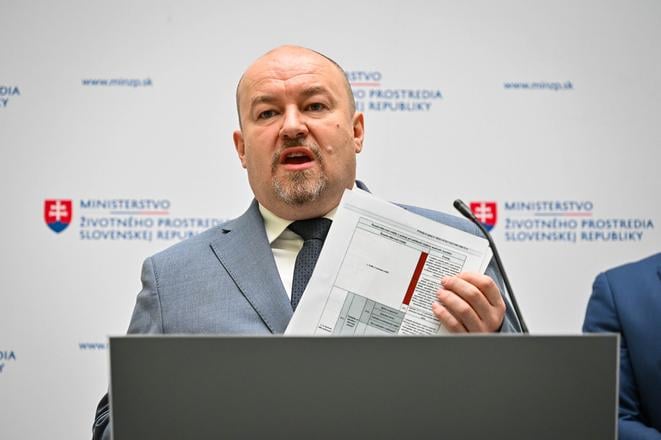The Association of Hungarian Parents in Slovakia may soon become one of many non-governmental organisations that would have to label itself as financed from abroad. The organisation often receives money from the Hungarian government.
“We do not consider it normal that an organisation will become a foreign-funded organisation after it receives a few thousand euros,” the association’s chair Rudolf Mézes told the Sme daily.
This proposed rule could also concern the NGOs that don’t receive any funding from abroad, but they use the popular Czech fundraising platform Donio to raise money.
Therefore, non-governmental organisations have urged the Fico cabinet and the parliament to reject a legislative proposal regarding NGOs drafted by Slovenská Národná Strana, saying that it’s discriminatory and at odds with Slovak and EU legislation.
“SNS MPs submitted a proposal that they know is contrary to EU law. By doing so, they proved that they are indifferent to the interests of people in Slovakia,” said Civic Platform for Democracy’s Katarína Batková, as quoted by the SITA newswire.
SNS lawmakers Rudolf Huliak, Dagmar Kramplová, Milan Garaj and Adam Lučanský wants to force NGOs to publish information about donations and donors if their amount exceeds the amount set by law, say, €5,000 a year. MPs are demanding that the provision regarding the anonymity of donors be scrapped completely. Also, organisations that receive money from abroad and that exceed €5,000 in one year should be labelled “organisations with foreign support”. This shouldn’t concern those NGOs that solely receive financing from EU schemes.
It is estimated that there are about 50,000 active non-profits.
Furthermore, they propose extending the involuntary abolishment of a non-profit organisation or a civic organisation in the case of violating any of the newly proposed provisions. For instance, a small organisation will also be obligated to issue an annual report, and if it fails to do so, its existence may be at stake. This competence would belong to the Interior Ministry. At present, an organisation can be banned by the court only if it arms itself or acts unconstitutionally.
Marcel Zajac, head of the Chamber of NGOs and Government Council for Non-governmental Organisations, added that the draft is more or less identical with the Hungarian law targeting NGOs. He thinks that the law won’t increase the transparency of the civil sector and will only stigmatise civil society.
“The proposal is inspired by authoritative versions from Russia and Hungary, and can be seen as another attack on civil society and the rule of law,” Transparency International Slovakia head Michal Piško told Denník N.
If the MPs okays the bill, Batková said, Slovakia would come closer to being cut off from EU funds. Zajac suspects that the SNS is aware of its proposal being similar to the Hungarian law on NGOs, and that the proposal could harm Slovakia’s reputation and the drawing of money from EU schemes.
In 2020, the Court of Justice of the European Union ruled that the Hungarian law was incompatible with EU law.
MPs should discuss the bill in the second half of April when the parliament will reconvene after a month-long break due to the presidential election. Speaker Peter Pellegrini (Hlas) is running in the election.
In an interview with JOJ, Pellegrini said that as president he wouldn’t mind signing a bill labelling NGOs as foreign agents.
If the bill were to be passed, it would become valid in January 2025.
In a March interview with the disinformation online daily Štandard, PM Robert Fico said that he wants to be done with NGOs by summer. After last year’s parliamentary election, he wanted to pass a bill that would label NGOs funded from abroad as “foreign agents”.
So far, the government has “only” scrapped funds for projects that were supposed to cover the areas of disinformation and human rights.
PM Fico has been at war with NGOs since the murder of journalist Ján Kuciak, after which he was forced to resign from the post of prime minister.


 SNS MP Rudolf Huliak. (source: TASR)
SNS MP Rudolf Huliak. (source: TASR)